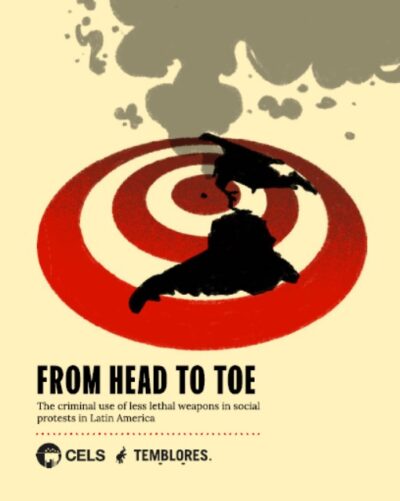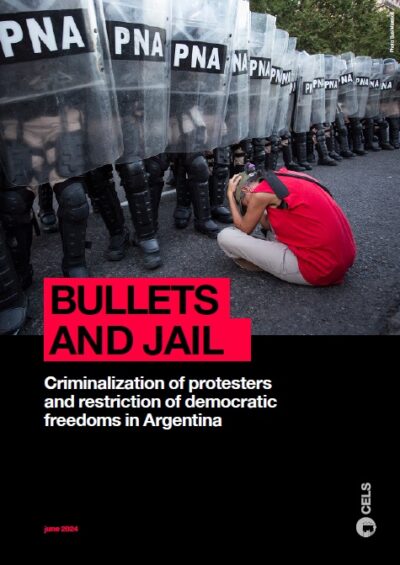Julio García Romero vs. Ecuador: CELS and RFK Human Rights appear as amicus curiae before the Inter-American Court of Human Rights
The case was heard in a public hearing nearly 20 years after the Chilean journalist’s death, caused by tear gas used by Ecuadorian police during a protest crackdown.
From head to toe: the criminal use of less lethal weapons in social protests in Latin America
Autor/a: CELS & Temblores
51 pags.
ver más
The Government reaffirmed its policy of criminalizing protests and defended its use of repression before the IACHR
During a public hearing requested by human rights, labor, and social organizations, representatives from the Inter-American Commission on Human Rights (IACHR) and the United Nations expressed their concerns about the use of force, arbitrary detentions, the Ministry of Security’s protocol, and the stigmatization of demonstrators and social organizations.
Bullets and jail: Criminalization of protesters and restriction of democratic freedoms in Argentina
Autor/a: CELS
14 pages
ver más
We denounced before the IACHR the increase in indiscriminate use of less lethal weapons to suppress protests
With over 20 international and regional organizations we questioned the irregular and disproportionate use of these weapons by security forces and their serious consequences on health and human rights of people who exercise their right to protest.
The Consequences of Less-Lethal Weapons in Chile
Since the beginning of the demonstrations in Chile, over 2800 protesters have been injured, among which 1180 by rubber bullets and pellets.
Tasers: without oversight or protocols for their use, their lethality is proven
We requested information on how the use of these stun guns will be regulated from the governments of the city and province of Buenos Aires and of the nation. The “lesser lethality” of Tasers cannot serve as an excuse to expand the grounds for using police force.
Protests in Buenos Aires: activists detained and migrants persecuted
While repressing the October 24th protest, the police detained social and political activists. In addition, the national government threatened to deport the migrants who were detained.
Protest, social movements and state crackdowns
A fresh round of content published on our Right to Protest platform covers ground across the world: from Kenya, Hungary and Australia to Peru, Canada and Argentina. The threats to this fundamental right can be seen on the street, with violent repressions, and in terms of state surveillance and judicial persecution. This online project was developed by openDemocracy, CELS and INCLO, with support from the ACLU.
The Right to Protest worldwide
We are unveiling an online platform that brings together original articles, videos and interviews on the right to protest, at a time when demonstrations are proliferating worldwide and states often respond with violence. This project was developed by openDemocracy, CELS and INCLO, with support from the ACLU.
Surveillance and the use of “less lethal” weapons during protests
Michael Power of South Africa’s Legal Resources Centre, Homer Venters from Physicians for Human Rights, and Matthew Cagle from the American Civil Liberties Union share reflections on state responses to social protest.




